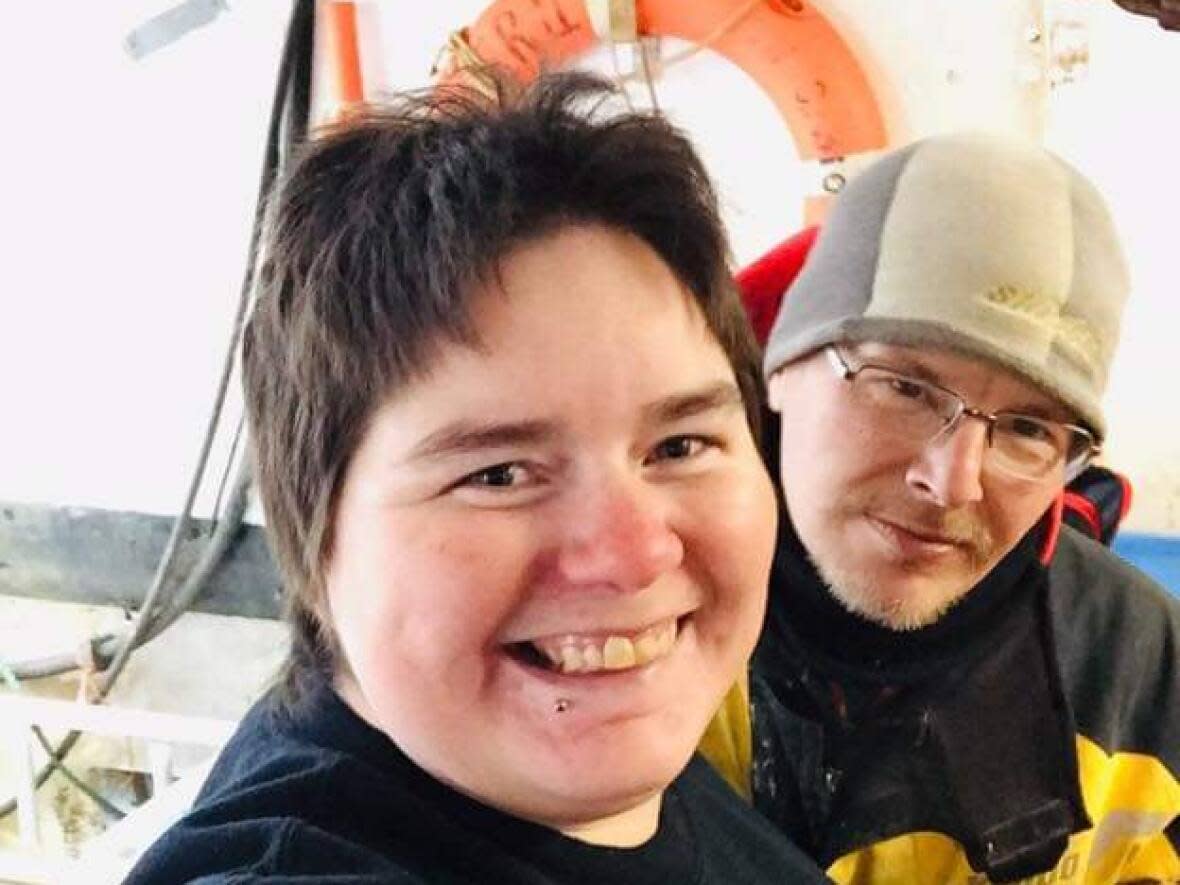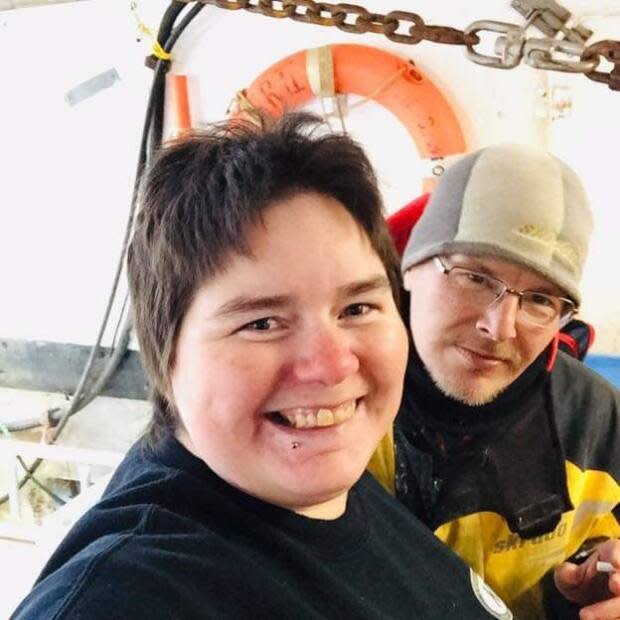Families donating life jackets each year in memory of Rigolet drowning victims


The families of two drowning victims are working to try and prevent others from dying the same way by donating life jackets to the Labrador community of Rigolet at the start of each boating season.
Melinda Rich and her partner, Andrew Michelin, were heading to Michelin's family cabin on July 30, 2019. The two didn't survive when the boat capsized about 40 kilometres from Rigolet.
At the time, RCMP said rescuers found two teenage girls alive, sitting on the capsized boat.
"They just loved life in general," said Rich's aunt, Geraldine Penney. "Loved their family, did what they could for whoever they could. Just two wonderful people that we lost way too early."

There isn't a way to know if life jackets may have made a difference, but Rich's family believes it might have. It inspired Penney to start a family project in their memory.
"When I got back home, I said we need to do something, you know, we need to do something to keep Melinda and Andrew's memory alive and to try to prevent this from happening again."
Life jackets could have saved Melinda and Andrew's lives
Last year and this year, Michelin and Rich's families have gathered life jacket donations and organized a draw to get them in the hands of those who need one in Rigolet.
The families are also trying to raise awareness that the Nunatsiavut Department of Health and Social Development has life jackets people can sign out for free. After hearing the idea, Michelin's family was very interested in helping.

"Life jackets could have saved Melinda and Andrew's lives," said Trudy Michelin, Andrew's sister-in-law.
"We feel it's very important to wear life jackets when you're out in boat."
Trudy said her brother-in-law was a loving father, brother and son.
"He made sure his daughter and her friend had life jackets on that day," Trudy said. "He'd be very proud that we're making sure more people have and wear life jackets."

Penney said people don't think an accident will happen to them, and is trying to warn others about that risk.
"We're trying to do something good for the community because Melinda, Andrew, they deserve this and the community," Penney said.
"Not only her family was devastated, the whole community was devastated, and if we can help one family or one person not to have to go through what we went through, it's all worth it."
Trudy said she especially hopes to gather more children's life jackets in the future. She said it can be a financial barrier to buy more life jackets as children age and grow.
"If we can provide them for the children as well as the adults, but for me, more importantly for the children, that's what I'd like to see in future," Trudy said.
Wear your life jacket, be prepared: Transport Canada offering safety tips
Transport Canada is reminding people heading out over the long weekend to have the proper equipment and licenses and be safe.
"Wearing your PFT, your personal flotation device, or your life jacket is one of the most important things that you can do when you go boating," said Sharon Sellers, a boating safety officer with Transport Canada.
Sellers said it's also important to remember what's called the one-ten-one rule: that a person can go into shock the first minute, start to lose mobility after 10 minutes, and be at critical risk of hypothermia after one hour.
As well, she is asking people to check the weather, tell people where you are going and when you hope to be back, and have a whistle for each person, plus floating rope, a magnetic compass, a watertight flashlight and flares.


